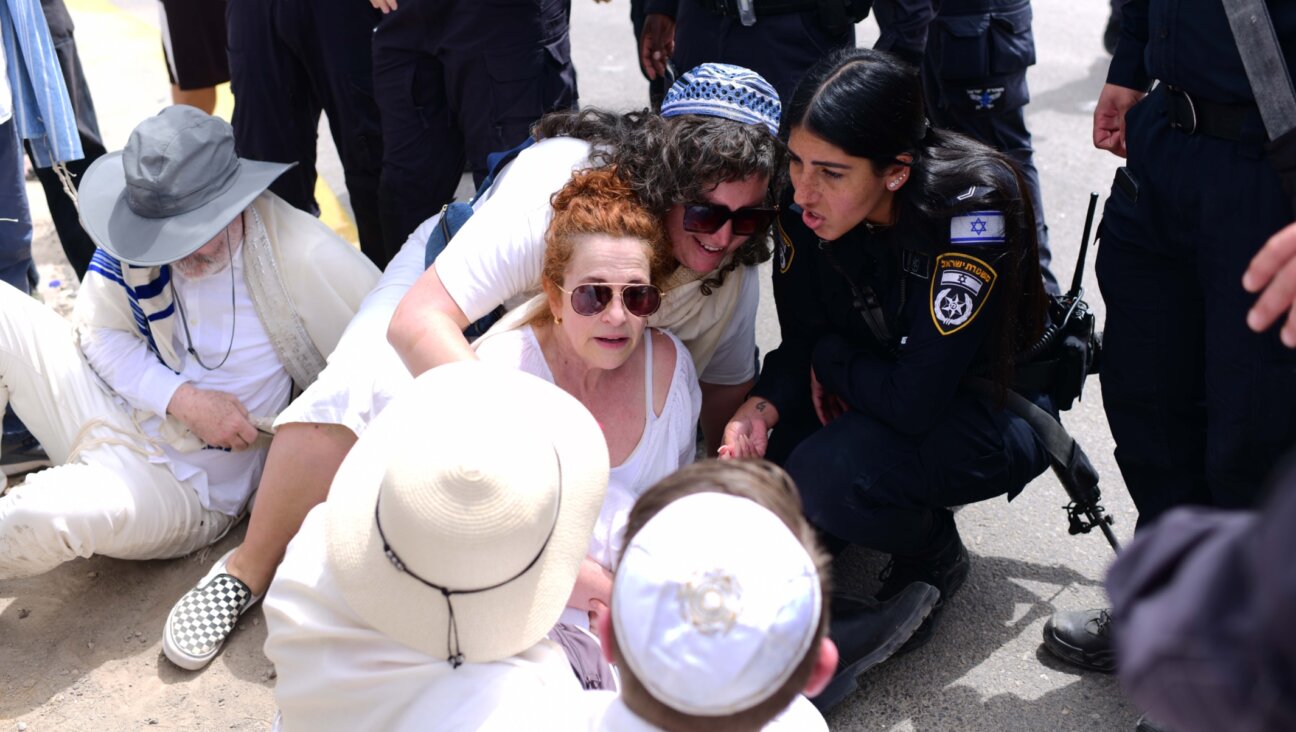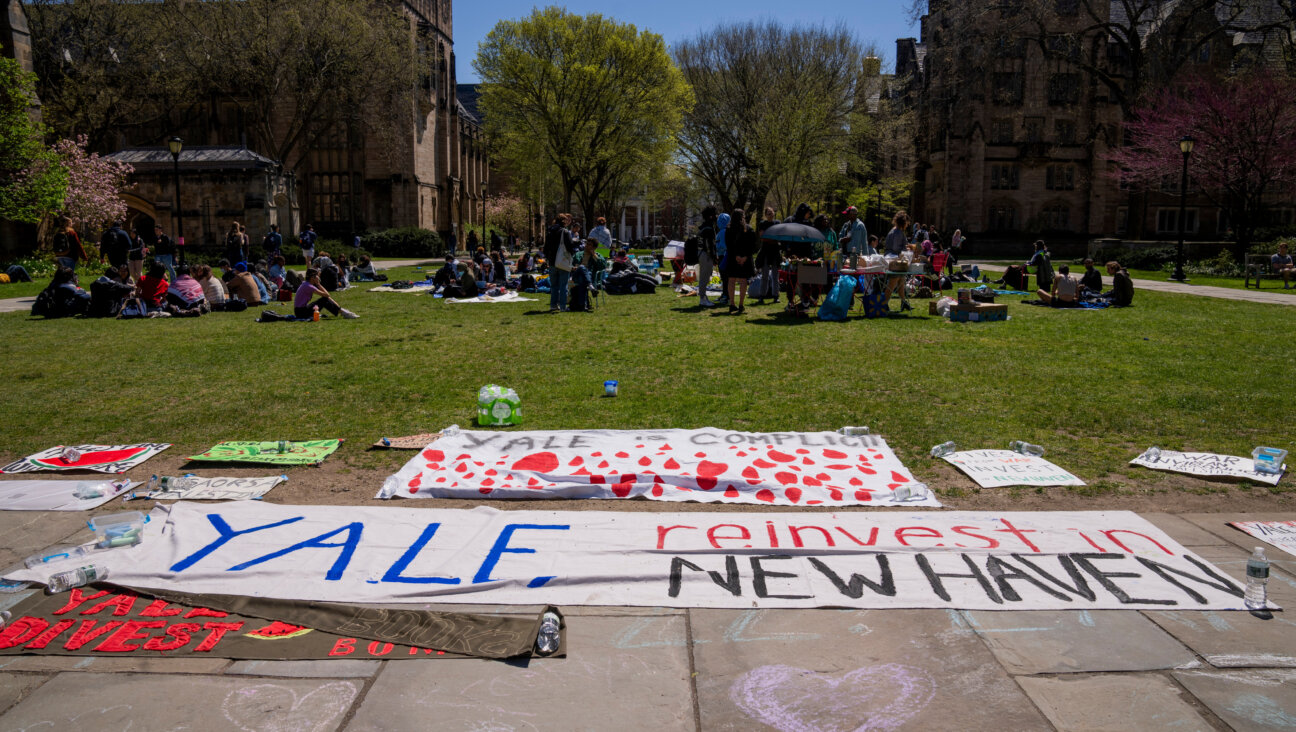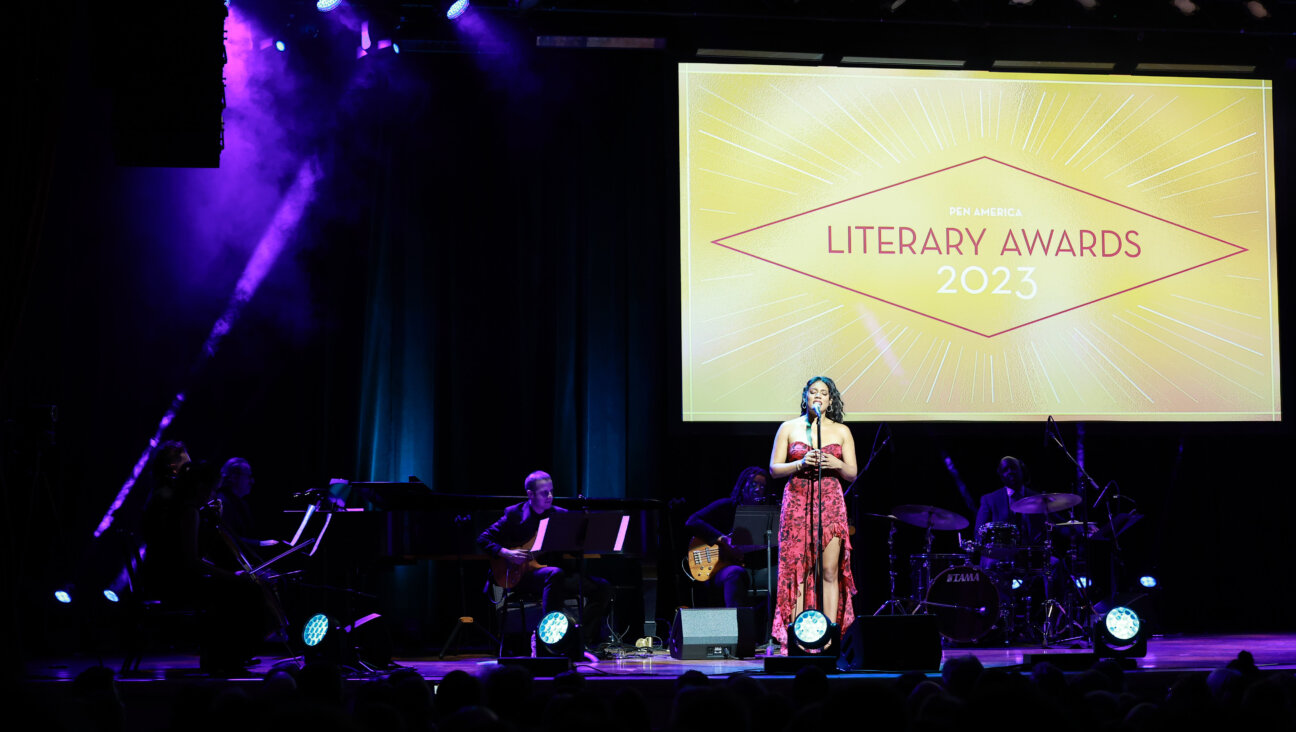LA’s Netiya Plants Jewish Gardens To Fight Hunger

Rabbi Noah Farkas and a student check vegetables in the synagogue?s garden to see if they are ready to be donated to a local food bank.
If Rabbi Noah Farkas of Valley Beth Shalom synagogue in Encino, fulfills his vision, 101 food-bearing gardens will blossom at synagogues, Jewish organizations, schools and private homes throughout urban Los Angeles — with 90% of their harvest going to feed the hungry through his new organization Netiya: The LA Jewish Coalition on Food, Environment and Social Justice.
The organization, which was founded in November 2010 and is getting off the ground this season with two gardens, is named for the Hebrew word for planting used in passages about the Garden of Eden.
The idea for the organization germinated at a 2009 Hunger Summit convened by the Jewish Federation of Greater Los Angeles. When a participant asked if gardening could be a way to combat local hunger, Farkas stood up and said that Valley Beth Shalom day school students and their families were doing precisely that. Working with the synagogue’s Green Team, they have established a budget and set up a work schedule to grow food that is given to local food banks to help feed the hungry. Several participants joined the effort and Farkas hosted a series of group meetings with Jewish professionals in the area to gain more volunteers. The organization also teamed up with the local federation’s Fed Up with Hunger campaign to which the Jewish Community Foundation of Los Angeles granted $250,000.
Two institutions, Valley Beth Shalom and the Shalom Institute, already have gardens that have been harvested and 14 other Jewish institutions are signed up to be part of the program. The newly participating institutions are still working on development gardens and planting.
Looking to the future, Farkas noted that developing the gardens and giving the food to food banks is just the first step. “Gardens are meeting places. They are places where young and old can come together, the affiliated and the unaffiliated. That, I think, will create a network or web that will connect neighborhoods and overcome some of the traditional divisions within the Jewish community,” he said.
“Netiya is about more than feeding the hungry. It’s about Jewish engagement. It’s about getting people involved from the ground up, producing food and distributing it in a physical way.”
Over the long-term, Farkas hopes that the physical actions of sowing, tending and harvesting these community food gardens will lead to deeper discussions among participants about where their food comes from, what it takes to grow it and how widespread hunger is in Los Angeles. According to the California Food Policy Advocates, more than a million Angelenos don’t know where their next meal is coming from.
“This is important work that will take a long time,” Farkas said. “We just have to move forward one step at a time. The only way systems change is slowly.”
Jeannette M. Hartman is an independent health and food writer. She is fascinated by the role that food plays in good health and the complex social, spiritual, environmental and economic issues involved in the act of sitting down to a meal.

I hope you appreciated this article. Before you go, I’d like to ask you to please support the Forward’s award-winning journalism this Passover.
In this age of misinformation, our work is needed like never before. We report on the news that matters most to American Jews, driven by truth, not ideology.
At a time when newsrooms are closing or cutting back, the Forward has removed its paywall. That means for the first time in our 126-year history, Forward journalism is free to everyone, everywhere. With an ongoing war, rising antisemitism, and a flood of disinformation that may affect the upcoming election, we believe that free and open access to Jewish journalism is imperative.
Readers like you make it all possible. Right now, we’re in the middle of our Passover Pledge Drive and we still need 300 people to step up and make a gift to sustain our trustworthy, independent journalism.
Make a gift of any size and become a Forward member today. You’ll support our mission to tell the American Jewish story fully and fairly.
— Rachel Fishman Feddersen, Publisher and CEO
Join our mission to tell the Jewish story fully and fairly.
Only 300 more gifts needed by April 30
























